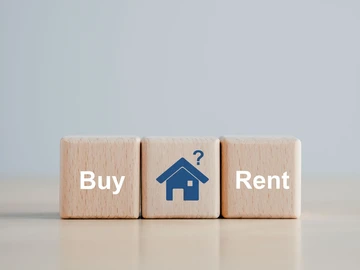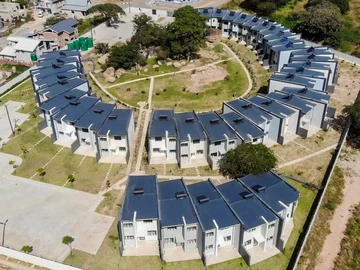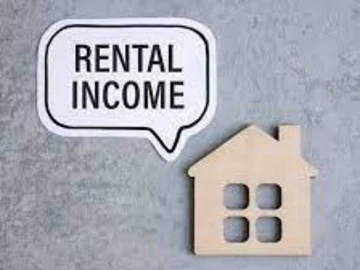Are you considering entering Zimbabwe’s real estate market? Whether your goal is to buy a property for personal use or as an investment, understanding the key differences is crucial for making the right decision. With cities like Harare, Bulawayo, and Victoria Falls offering prime opportunities, property investment in Zimbabwe can be both lucrative and rewarding when approached with the right strategy.
Buying to Let: A Smart Real Estate Investment Strategy
Investing in property to let is a popular choice for building long-term wealth. Rental properties, especially in high-demand areas like Borrowdale, Avondale, or Milton Park in Harare, offer steady income potential. However, this type of investment requires careful planning to ensure profitability.
Key Factors to Consider When Buying to Let in Zimbabwe
1. Financing Your Investment Property
If you don’t have cash on hand, you can apply for a mortgage loan through local banks like CABS, FBC, or Steward Bank. For buy-to-let properties, financial institutions may require a higher deposit and more stringent credit checks. Ensure you understand the terms and consider consulting a mortgage advisor.
2. Understanding the Rental Market
Conduct thorough research into the local rental market. Identify areas with high demand, such as Highlands or Westgate, where tenants actively seek properties. Ensure that rental income can cover most, if not all, of your mortgage repayments.
3. Budgeting for Maintenance
Property investments require regular maintenance to retain their value and attract tenants. Allocate a portion of your rental income to upkeep costs to keep your property in top condition and legally habitable.
4. Additional Costs
Factor in transaction costs like transfer fees, legal fees, and taxes. Additionally, budget for tenant sourcing, lease preparation, and potential advertising costs to attract the right renters.
5. Setting Rental Terms
Clearly define tenant and landlord responsibilities in the lease agreement. Tenants typically cover rent and utilities, while landlords handle property taxes, levies, and major repairs not caused by tenant negligence.
6. Insurance for Rental Properties
Landlords must insure the property itself. If the property is furnished, consider insuring the contents as well. Tenants should secure their own insurance for personal belongings.
7. Tax on Rental Income in Zimbabwe
Rental income is taxable. Work with a tax professional to understand allowable deductions and ensure compliance with Zimbabwe Revenue Authority (ZIMRA) requirements.
8. Professional Property Management
For peace of mind, consider hiring a rental agent. They can handle tenant screening, rent collection, property inspections, and maintenance, making your investment less stressful and more profitable.
Buying to Live: Your Dream Home Awaits
Owning a home in Zimbabwe is a milestone many aspire to achieve. Whether you’re a first-time buyer or upgrading, purchasing a property to live in is an emotional and financial decision.
Advantages of Paying a Deposit When Buying a Home in Zimbabwe
1. Prove Financial Stability
Paying a deposit demonstrates your commitment and financial readiness to lenders, increasing the likelihood of mortgage approval.
2. Negotiate Better Loan Terms
A substantial deposit can help you secure a lower interest rate, reducing monthly repayments and overall costs over the loan term.
3. Lower Monthly Costs
A larger deposit reduces the principal loan amount, making monthly repayments more affordable.
4. Save on Interest Over Time
By borrowing less, you’ll pay less interest over the life of the loan, saving thousands of dollars in the long term.
5. Mental Preparation for Homeownership
Saving for a deposit helps build financial discipline, preparing you for the ongoing costs of homeownership, such as maintenance, rates, and insurance.
Tips for Pricing Rental Properties in Zimbabwe
For landlords, setting the right rental price is essential to attracting quality tenants and minimizing vacancy periods.
- Market Analysis: Research similar properties in your area to determine competitive rental rates. For example, homes near Harare’s CBD or major schools often command premium rents.
- Economic Factors: Consider Zimbabwe’s economic landscape, including inflation and unemployment rates, when setting rental prices.
- Property Features: Highlight unique features like solar power, boreholes, or secure parking, which can justify higher rental rates.
- Vacancy Rates: In competitive areas, adjust your rental price to stand out and attract reliable tenants.
Key Takeaways for Zimbabwean Property Investors
Whether you’re buying to live in or to let out, understanding your goals and the market is crucial. Real estate in Zimbabwe offers tremendous potential, from rental income in high-demand neighborhoods to long-term appreciation in growing cities.
For investment properties, prioritize financial planning, market research, and professional property management. For personal homes, focus on affordability, deposit savings, and long-term financial stability.
Ready to start your property journey? Visit property.co.zw for the latest listings, expert advice, and tools to make your dream a reality. As Zimbabwe’s No. 1 property marketplace, we’re here to help you every step of the way.
 Continue with Facebook
Continue with Facebook
 Continue with Email
Continue with Email














